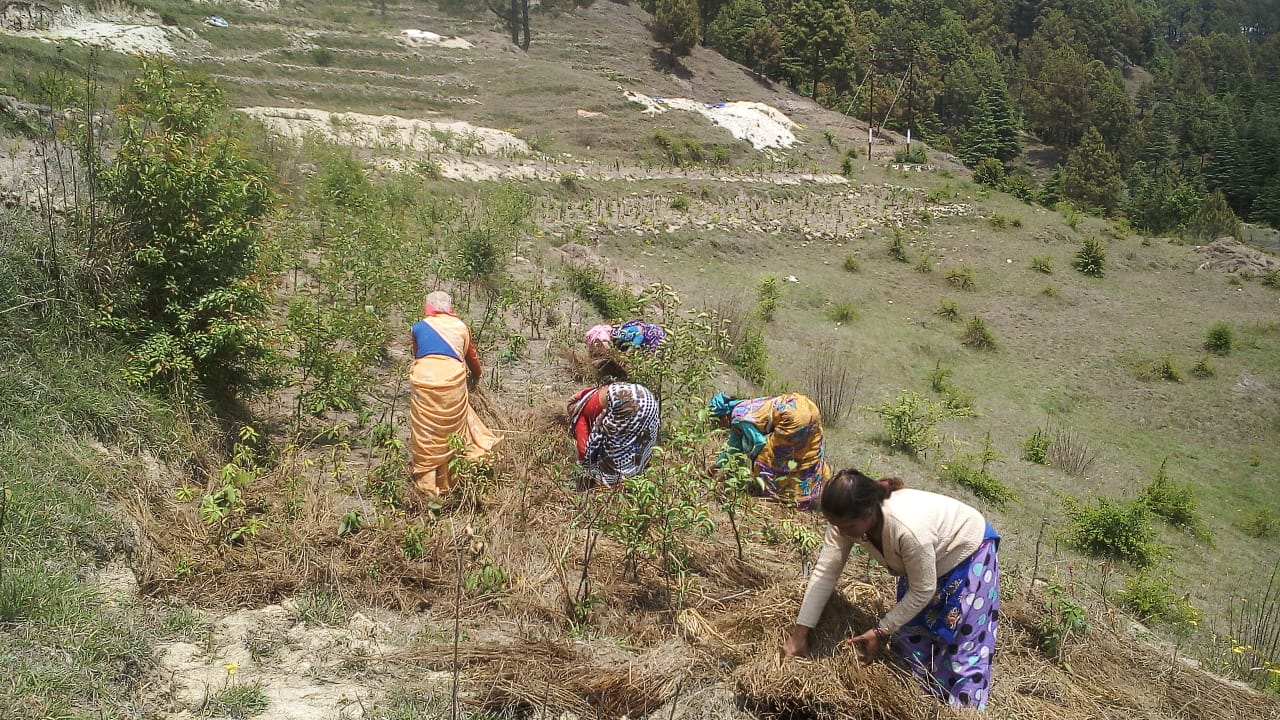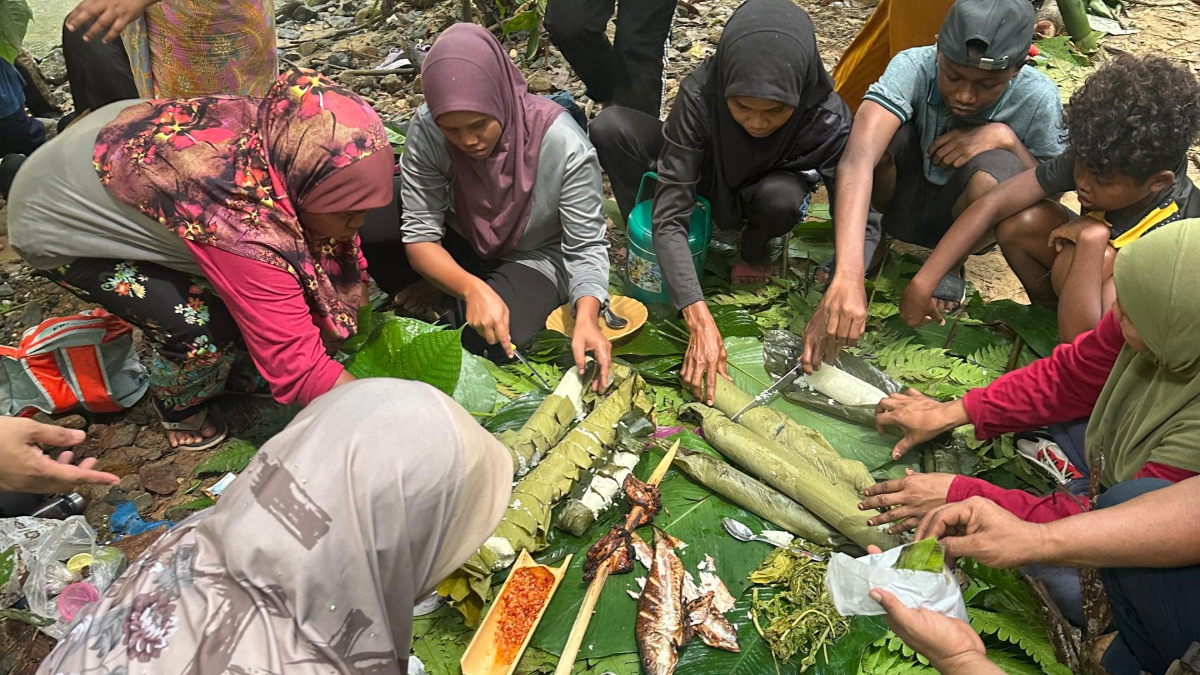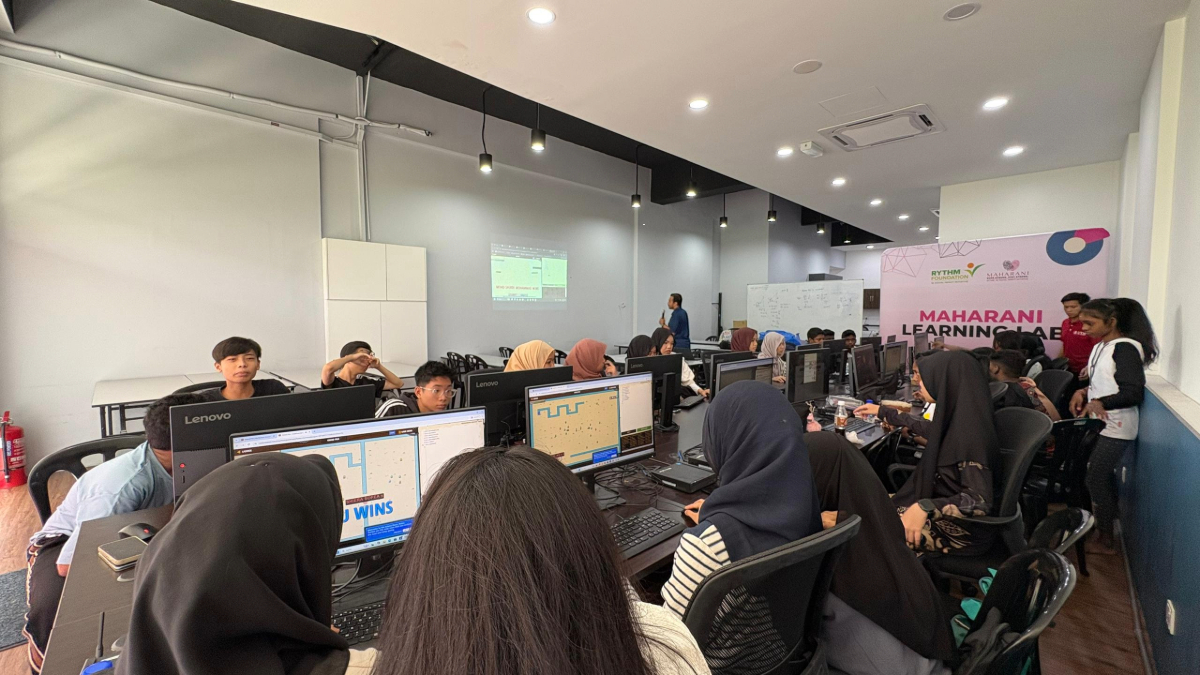Neeru Arya, 45, struggled to take care of her family as her husband’s meagre income as a common labourer was inconsistent and never enough. It didn’t help that her husband was also an alchoholic. With three young children and her in-laws living with them, Neeru’s only wish was to find a steady-paying job to help meet her family’s needs.
“I am illiterate and there are not many job opportunities here in Champawat,” she said. Champawat is a small district in the Himalayan state of Uttarakhand, northern India.
When Alaap, a non-profit organisation with a mission to revive natural forests wanted to start their reforestation project in Champawat, Neeru quickly registered with them. She was hired with a salary of Rs 5,000 to work as a grass cutter.
Today, Neeru is among the 10 women in her village who work with Alaap, an organisation which is fighting climate change and poverty by working with remote Himalayan communities to transform barren hillsides into dense native forests.

Bhupen, a project manager with Alaap is well aware of the issues in the area.
“Most of the women in this area are very poor, illiterate and married to alcoholics. They don’t know of a life outside these mountains. When we first came to this area about two years ago, they were excited about the project because the community here has a deep respect for nature. Through Alaap, some of the women were employed and received a steady monthly salary which helps to provide for their families,” he said.
He said the biggest challenge in the reforestation project is the mountainous terrain which makes travel long and difficult.
“We don’t have a nursery here, so we have to bring the sapling from far off places which are sometimes about 150 km away. Because of the distance and the roads, the transport charges are also high,” he said.

Alaap Founder and Chief Executive Officer Sheeba Sen says that Alaap also advocates for forest rights, securing livelihoods and creating opportunities for eco-entrepreneurship.
“We want to save the forest by actually creating them with community movement. So, we work with young people and community leaders to bring back their own forest in their own backyards,” she said.
One of the methods Alaap uses for reforestation projects is called Miyawaki.
“Forests planted through this method, compared with conventional plantations grow 10 times faster and can be up to 100 times more bio-diverse. The average survival rates are also over 90%,” she said.

Through a partnership with Manava Seva Dharma Samvardhini (MSDS), RYTHM Foundation funds Sheeba under the Sadguru Gnanananda Fellowship. The fellowship is offered to young citizens who are socially conscious and work with people in rural areas or marginalised groups.
Through the fellowship, the recipients are given a monthly grant for three years, to help them scale their projects to benefit their local communities and provide the project beneficiaries with a sustainable source of income.
 Bhupen, a project manager with Alaap is well aware of the issues in the area.
“Most of the women in this area are very poor, illiterate and married to alcoholics. They don’t know of a life outside these mountains. When we first came to this area about two years ago, they were excited about the project because the community here has a deep respect for nature. Through Alaap, some of the women were employed and received a steady monthly salary which helps to provide for their families,” he said.
He said the biggest challenge in the reforestation project is the mountainous terrain which makes travel long and difficult.
Bhupen, a project manager with Alaap is well aware of the issues in the area.
“Most of the women in this area are very poor, illiterate and married to alcoholics. They don’t know of a life outside these mountains. When we first came to this area about two years ago, they were excited about the project because the community here has a deep respect for nature. Through Alaap, some of the women were employed and received a steady monthly salary which helps to provide for their families,” he said.
He said the biggest challenge in the reforestation project is the mountainous terrain which makes travel long and difficult.
 Alaap Founder and Chief Executive Officer Sheeba Sen says that Alaap also advocates for forest rights, securing livelihoods and creating opportunities for eco-entrepreneurship.
Alaap Founder and Chief Executive Officer Sheeba Sen says that Alaap also advocates for forest rights, securing livelihoods and creating opportunities for eco-entrepreneurship.
 Through a partnership with Manava Seva Dharma Samvardhini (MSDS), RYTHM Foundation funds Sheeba under the Sadguru Gnanananda Fellowship. The fellowship is offered to young citizens who are socially conscious and work with people in rural areas or marginalised groups.
Through the fellowship, the recipients are given a monthly grant for three years, to help them scale their projects to benefit their local communities and provide the project beneficiaries with a sustainable source of income.
Through a partnership with Manava Seva Dharma Samvardhini (MSDS), RYTHM Foundation funds Sheeba under the Sadguru Gnanananda Fellowship. The fellowship is offered to young citizens who are socially conscious and work with people in rural areas or marginalised groups.
Through the fellowship, the recipients are given a monthly grant for three years, to help them scale their projects to benefit their local communities and provide the project beneficiaries with a sustainable source of income.




